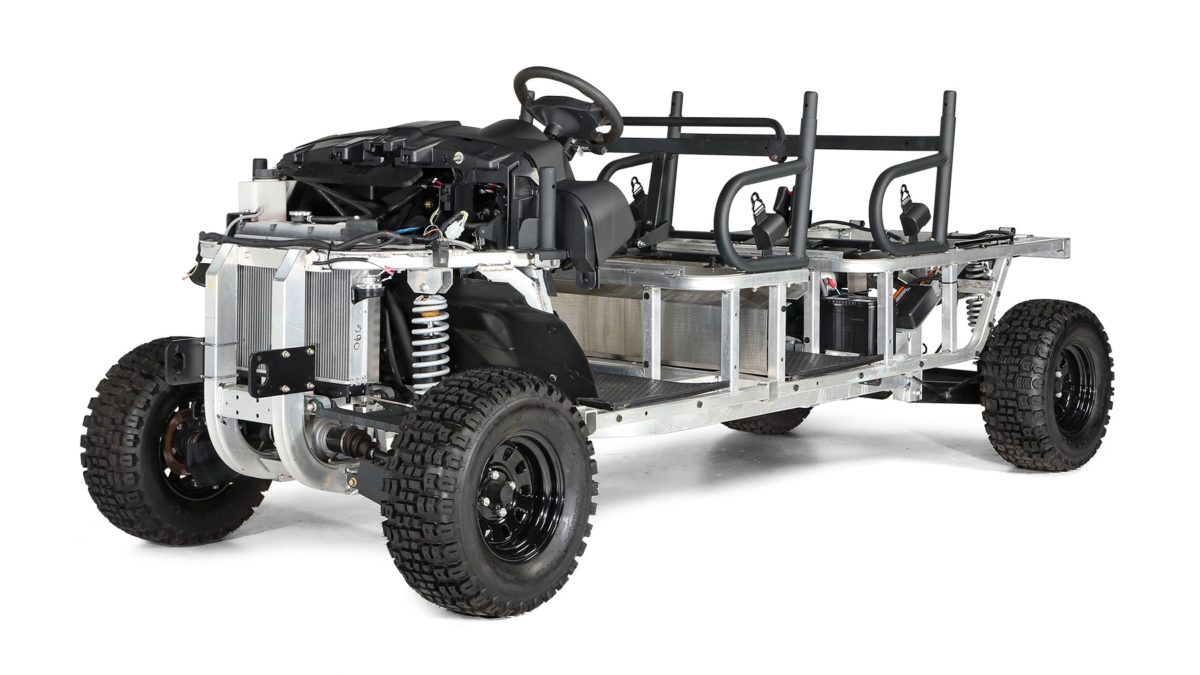
To extend the life of utility vehicles, FMs should look for rustproof, corrosion-resistant, aircraft-grade aluminum frames like this one.

To extend the life of utility vehicles, FMs should look for rustproof, corrosion-resistant, aircraft-grade aluminum frames like this one.
Buying a fleet of utility and transport vehicles is a major investment. So you’ll want durable vehicles that provide years of service. Unfortunately, many utility vehicles experience early damage due to water, chemicals, fertilizers and other environmental factors. Further, many of them are actually recreational vehicles sold into commercial markets.
Bill Dakuras, global director of sales and business development at Club Car, shares his two top tips for extending the life of your utility and transport vehicles.
1. Look for utility vehicles engineered on aluminum frames.
Most utility vehicles are built on heavy steel frames. Their manufacturers often position that as a strength. In truth, steel frames are subject to rust in wet, corrosive environments.
This is true even of steel frames that have been powder coated to “prevent rust” because the powder coating is easily scratched. What’s more, the coating is generally not applied to the inside of the frame. That means rust may get a foothold inside the frame, spread and devalue your investment.
Look for utility vehicles, people movers and street-legal low speed vehicles (LSVs) built on rustproof, corrosion-resistant aluminum frames. They withstand water, salt and lawn chemicals. And, when designed with an I-beam construction, they resist impact better than steel frames, even those rented by contractor and used in grueling construction applications.
“Our Carryall® utility vehicles with rustproof aluminum frames are holding up much better than the other vehicles we have tried in the past. We keep them rented all the time, and have very few problems,” says Joe Alonzo, Co-owner of RG Rents, an independent rental company in St. Louis, Mo., that services commercial contractors.
2. Don’t play around. Look for utility vehicles engineered for work.
Many utility vehicles sold into commercial or government markets are actually built for recreational use, with speeds of up to 50 miles per hour. That’s just asking for trouble on work sites. Further, their suspension systems are designed for speed, not load carrying. These vehicles can’t hack tough commercial applications.
Others are purpose-built for work from the ground up. Their suspension systems are designed specifically for load carrying. They generally have much higher bed and towing capacities than vehicles built for recreational use.
“The Club Car vehicles we use are built like tanks. We have a lot fewer breakdowns than we did with the vehicles we were using before,” says Charles Gettis, equipment and PTV mechanic at Georgia College and State University in Milledgeville, Ga.
